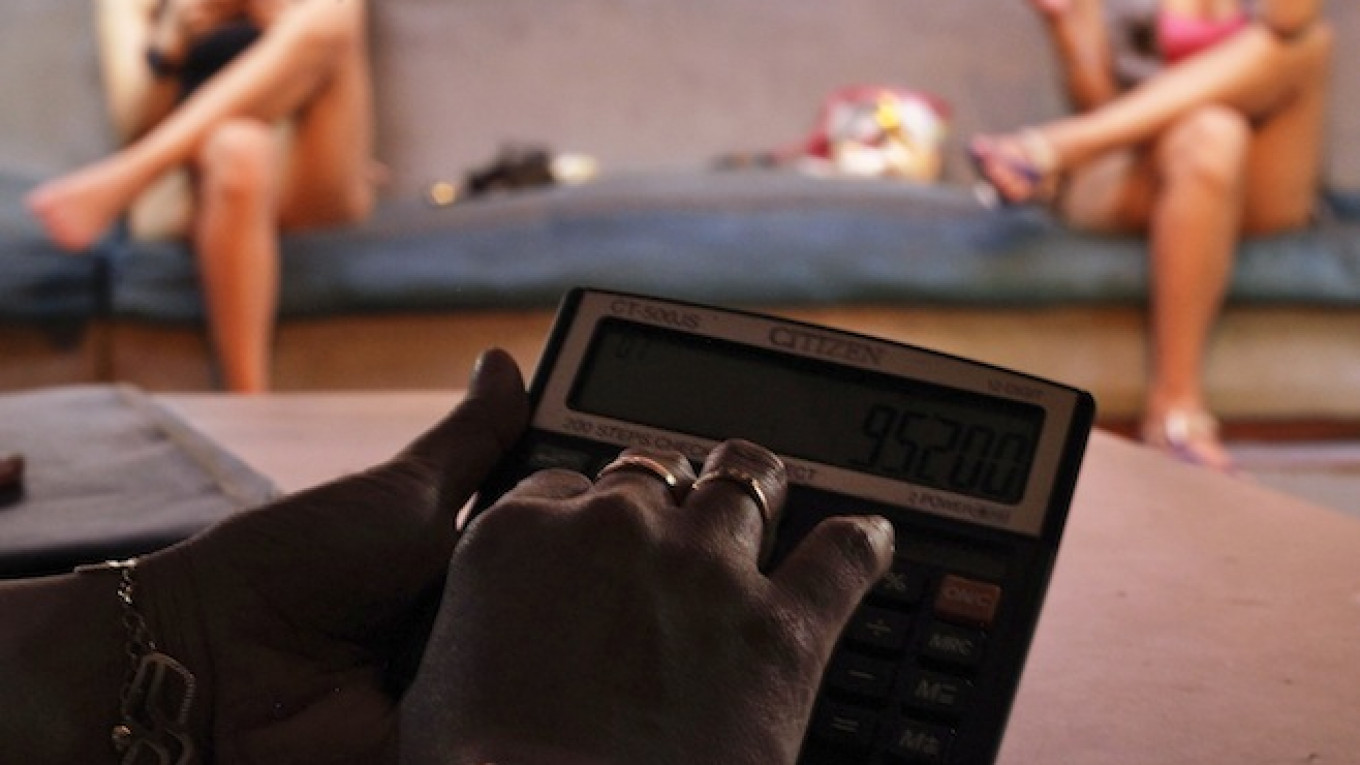A group of vigilantes in Russia's east Siberian republic of Buryatia has launched a campaign to punish prostitutes for “bringing shame to their people,” posting a video to YouTube that shows young women suspected of offering sex for money being tormented.
The video, purportedly published by a youth movement that advocates the “development and renewal of Buryat culture,” opens with blaring rap music and the declaration: “We, the youth of Buryatia, are outraged over the decline of moral values and total destruction of Buryatia's culture.”
“The vastness of the Internet is boiling over with whores from Buryatia. We will visit each one,” the narrator of the video says before he is shown picking out an alleged prostitute named Lina in the capital city Ulan-Ude.
The video shows the narrator contact the young woman, inquire about her hourly rate and then set up a meeting. Once at her home, the young woman is shown being shoved to the floor before having a bucket of green paint poured over her head, as the narrator asks: “Aren't you ashamed?”
He then threatens “to make it worse than just paint” if she's caught selling her body again. “For now this is just a warning. Soon we will begin to act,” the group says at the end of the video.
Regional online news site Baikal Daily reported on Thursday that the video had been sent to their editors, though it was unclear whether the woman shown being “punished” was really a prostitute.
Another vigilante group, Occupy Pedophilia, had earlier gained notoriety for similar stunts using the same tactics: hunting down alleged pedophiles and homosexuals on social media websites and tricking them into a meeting, where they would then be attacked on camera.
The founder of that group, Maxim Martsinkevich, was convicted in August of inciting hatred and sentenced to five years in prison.
Contact the author at a.quinn@imedia.ru
A Message from The Moscow Times:
Dear readers,
We are facing unprecedented challenges. Russia's Prosecutor General's Office has designated The Moscow Times as an "undesirable" organization, criminalizing our work and putting our staff at risk of prosecution. This follows our earlier unjust labeling as a "foreign agent."
These actions are direct attempts to silence independent journalism in Russia. The authorities claim our work "discredits the decisions of the Russian leadership." We see things differently: we strive to provide accurate, unbiased reporting on Russia.
We, the journalists of The Moscow Times, refuse to be silenced. But to continue our work, we need your help.
Your support, no matter how small, makes a world of difference. If you can, please support us monthly starting from just $2. It's quick to set up, and every contribution makes a significant impact.
By supporting The Moscow Times, you're defending open, independent journalism in the face of repression. Thank you for standing with us.
Remind me later.






